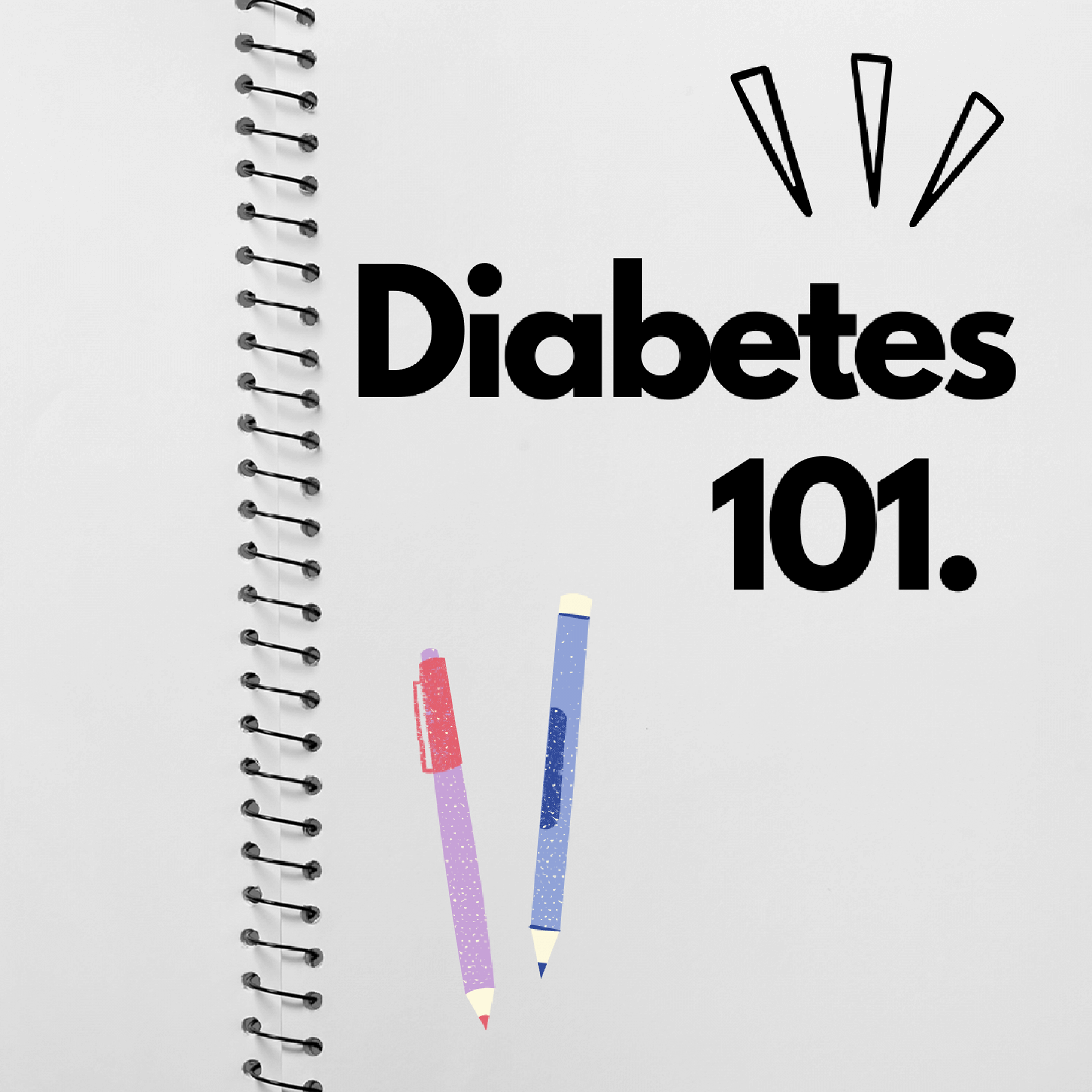Being told by your doctor that you either have diabetes or you're at risk for diabetes can be scary. What does this mean and what should you do next are reasonable questions. We're help you to help you with the basics.
What is diabetes?
Diabetes is a condition where your body has difficulty using the sugar in your blood. Normally, when you eat food, it is digested into the simplest form of sugar and it enters your cells to produce energy. When you have diabetes, the sugar has a hard time entering the cell, so instead of going into your cells, it stays in your blood.
Higher than normal blood sugar isn’t healthy for your body. The goal is to get the sugar out of the blood and into the cells where it can be used for energy.
Fortunately, when you work with a dietitian, you can reach normal blood sugar by modifying what you eat, being more physically active, reducing stress and sometimes taking medication.
Are There Different Types of Diabetes?
There are 3 types of diabetes and a condition called pre-diabetes. The words "blood glucose" and "blood sugar" are often used interchangeably by your healthcare provider.
Pre-Diabetes: A person with prediabetes has a higher blood sugar level than normal but not high enough to be diagnosed with diabetes. There are not always symptoms with pre-diabetes, so a regular checkup with your doctor is important. Lifestyle adjustments such as a change in diet and physical activity may be able to bring blood sugar levels back down to normal levels. Prevention is key so that pre-diabetes doesn't develop into type 2 diabetes.
Type 1 Diabetes: This type of diabetes can occur at any age, but typically occurs before age 30. In someone who has type 1 diabetes, the body no longer produces the hormone called insulin. Insulin helps get energy from food (sugar or glucose) into the cell after a meal. Insulin is the key that opens the cell door to let sugar in. Therefore, individuals with type 1 diabetes need to administer insulin into the body to get energy and lower levels of sugar in the blood.
Type 2 Diabetes: With type 2 diabetes insulin is present in the body but the cells are either resistant to insulin or the body doesn’t make enough of it. Therefore, the cells are not able to use insulin in an efficient way to get sugar out of the blood. Insulin has the key to open the cell door, but the keys don’t work. When sugar is not taken into the cell, it is left in the bloodstream and the blood glucose levels then rise to unsafe levels. Some individuals are able to control blood glucose levels by adjusting diet, increasing physical activity and others require medication.
Gestational Diabetes: Gestational diabetes occurs during pregnancy and can occur even if the mother has not had a history of diabetes before pregnancy. Changing hormones during pregnancy can cause resistance to insulin, making it hard for cells to use. When cells have trouble using insulin, they are not able to take get energy from the blood. The sugar is left in the bloodstream and can rise to an unsafe level. This can be dangerous to both the developing baby and the mother. Gestational diabetes can be managed through diet and physical activity changes, medication, or a combination of both.
Nutrition Dynamix has a comprehensive diabetes program. It includes individual nutrition visits and group classes led by a Registered Dietitian and Diabetes Educator. The program is accredited by the American Diabetes Association. Individual nutrition visits include a personalized assessment of your eating patterns with a meal guide tailored to your individual needs. We will discuss how food impacts blood sugar and what/when/how much to eat when you have diabetes. You'll learn how to check your blood sugar, understand your medications, and the importance of preventing diabetes complications. Each visit is customized to help you better self-manage your diabetes.
Small group-based classes include discussions on healthy eating, meal planning, physical activity, medications and coping with stress. We help you understand reasons for high and low blood sugar and how to prevent complications related to your heart, eyes, kidneys, and feet.
Learn more about our diabetes program and how to sign up.


